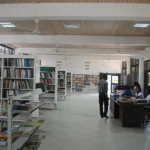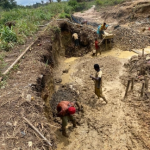1. The Role of Ghanaians in Ghana’s Development
The statement “Only Ghanaians can believe Ghana” emphasizes that development must be rooted in the aspirations, efforts, and leadership of Ghanaians themselves. This principle builds on the concept of *self-determination*, which suggests that sustainable growth comes from within, driven by people who understand the unique challenges and opportunities of their own context. Here’s how Ghanaians can take charge of their country’s transformation:
a. Developing a National Vision and Ownership
– A shared national vision is critical. This vision must transcend political parties, ethnic divisions, and short-term interests. It requires a long-term development framework that is embraced by all stakeholders, including governments, private sector actors, civil society, traditional leaders, and ordinary citizens.
– Ghana has already developed frameworks like “Ghana Vision 2020” and “Ghana Beyond Aid,” but these must be backed by actionable, measurable strategies. Citizens must feel a sense of collective ownership of these plans, and leaders must communicate them effectively.
b. Education as the Foundation of Development
– Education is the most powerful tool for empowering individuals and transforming societies. In Ghana’s case, the focus should not simply be on increasing access but also on improving quality and ensuring relevance.
– Primary and Secondary Education: Beyond literacy and numeracy, schools should instill critical thinking, problem-solving, and civic responsibility. Subjects like Ghanaian history, culture, and ethics should be emphasized to foster national pride.
– Higher Education and Research: Universities must align their curricula with national needs, focusing on areas such as science, technology, engineering, and mathematics (STEM), as well as agriculture and healthcare. Research institutions should be better funded to innovate solutions to local problems.
– Technical and Vocational Training:
Ghana needs skilled workers in trades such as carpentry, welding, electrical work, and plumbing to support industrialization. Expanding technical and vocational education training (TVET) will equip the youth to meet these demands.
c. Fostering Entrepreneurship and Innovation
– Ghana has a youthful population, and their energy and creativity must be harnessed. Government policies should promote entrepreneurship by:
– Providing access to affordable credit for startups and small businesses.
– Creating innovation hubs and incubators where young people can develop ideas and collaborate.
– Partnering with private sector actors to mentor young entrepreneurs.
– Encouraging local production by creating a market for “Made in Ghana” goods.
d. Tapping Into the Ghanaian Diaspora
– Ghanaians in the diaspora have significant resources, expertise, and networks that can contribute to national development. Policies should be put in place to encourage diasporans to invest in local businesses, participate in governance, and transfer skills.
– For example, Rwanda has successfully leveraged its diaspora to rebuild the country after the genocide, and Ghana can take inspiration from such strategies.
– Initiatives like the “Year of Return” demonstrated Ghana’s ability to attract global attention, and similar programs can be expanded to include economic and developmental collaborations.
e. Promoting National Unity and Patriotism
– Ghana is a diverse country, with over 70 ethnic groups and multiple languages. While diversity is a strength, it can also create divisions. Leaders must actively promote inclusivity and unity through:
– Fair distribution of resources to all regions.
– Celebrating diversity through national events and media.
– Addressing grievances that lead to ethnic or regional tensions.
2. Building Strong Institutions
Strong institutions are the bedrock of sustainable development. They create stability, enforce accountability, and ensure that the rule of law is upheld. Without strong institutions, even the best intentions can falter. Ghana has already made strides in its democratic journey, but much remains to be done to strengthen its institutions.
a. Independent and Transparent Judiciary
– The judiciary must be insulated from political interference to ensure that justice is impartial. This requires:
– Adequate funding for the judicial system.
– Training and capacity-building for judges and court staff.
– Technology adoption to digitize court records and improve efficiency.
b. Anti-Corruption Mechanisms
– Corruption undermines public trust and diverts resources from development. Ghana needs to tackle this challenge head-on through:
– Strengthening anti-corruption agencies like the Commission on Human Rights and Administrative Justice (CHRAJ) and the Office of the Special Prosecutor.
– Increasing transparency in public procurement processes.
– Encouraging whistleblowing by protecting individuals who expose corruption.
c. Efficient Public Sector
– A bloated and inefficient public sector hampers development. Reforms should focus on:
– Streamlining bureaucratic processes to reduce delays and inefficiencies.
– Introducing performance-based evaluations for civil servants.
– Embracing e-governance to make services more accessible and transparent.
d. Decentralization and Local Governance
– Bringing governance closer to the people ensures that resources are allocated effectively and that development reflects local priorities. Strategies include:
– Giving local governments more control over budgets and decision-making.
– Training local officials to manage resources effectively.
– Encouraging citizen participation in local governance through town hall meetings and community forums.
3. Cultural Relevance in Development
Ghana’s cultural heritage is a valuable asset that can drive progress while preserving the country’s identity. Development efforts must respect and incorporate Ghanaian culture to avoid alienating the population.
a. Cultural Preservation
– Ghana’s rich traditions, languages, and practices should be preserved and celebrated. This can be done through:
– Including Ghanaian languages and history in school curricula.
– Supporting traditional festivals and cultural events.
– Documenting and archiving oral histories and folklore.
b. Leveraging Culture for Economic Growth
– The creative arts (music, film, fashion, etc.) can be a significant source of income and employment. For example:
– The global success of Afrobeat artists like Sarkodie and Stonebwoy shows the potential of Ghanaian music to reach international markets.
– The film industry, or “Ghallywood,” can be developed to rival Nollywood with the right investments and marketing.
c. Tourism Development
– Ghana is already a popular destination for cultural tourism, with attractions like Cape Coast Castle, the Ashanti Kingdom, and Mole National Park. To maximize the benefits:
– Infrastructure (roads, hotels, airports) must be improved.
– Marketing campaigns should target both African Americans and global tourists.
– Local communities should benefit directly from tourism revenue.
4. Leveraging Global Assistance
While Ghana must take ownership of its development, partnerships with the international community can complement local efforts. The key is to negotiate terms that align with Ghana’s long-term interests.
a. Strategic Foreign Aid
– Aid should be directed toward sectors that will yield long-term benefits, such as education, healthcare, and infrastructure. Conditionalities that undermine sovereignty should be avoided.
b. Technology Transfer
– Ghana can forge partnerships with countries like China, India, and South Korea to acquire technology and expertise in areas like manufacturing, IT, and renewable energy.
c. South-South Cooperation
– Collaborating with other developing countries can provide valuable lessons. For example:
– Learning from Rwanda’s governance reforms.
– Adopting agricultural best practices from Brazil.
5. Ensuring Longevity Through Sustainability
Sustainability must be at the core of Ghana’s development strategy. This includes economic, social, and environmental sustainability.
a. Economic Sustainability
– Reduce dependence on exports of raw materials like cocoa and gold by developing value chains. For example:
– Processing cocoa into chocolate locally.
– Refining gold domestically for export as finished jewelry.
b. Social Sustainability
– Address poverty and inequality through social interventions like free senior high school education and healthcare access.
– Strengthen social safety nets for vulnerable populations.
c. Environmental Sustainability
Protect natural resources through policies like afforestation and sustainable mining.
– Invest in renewable energy to reduce dependence on fossil fuels.
Conclusion
A Ghana that is internationally competitive, locally viable, and culturally relevant is attainable, but only if Ghanaians lead the charge. By investing in education, building strong institutions, preserving cultural identity, and leveraging strategic partnerships, Ghana can lay the foundation for enduring progress. This requires a collective effort from all citizens, a commitment to shared goals, and the visionary leadership needed to transform potential into reality.
















